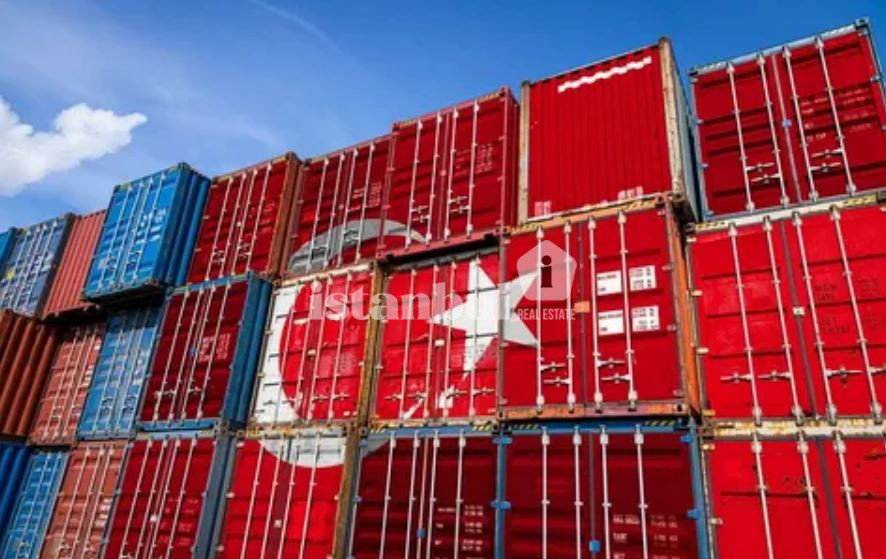
- 19 November 2024
Guide to Starting an Export and Import Business in Turkey
Guide to Starting an Export and Import Business in Turkey
Located between Europe and Asia, Turkey has always played an important role in international trade. Its proximity with the European Union, Central Asia, the Middle East, and Africa makes Turkey a very strategic place for people who want to pursue export-import business opportunities. Step-by-step procedure for initiating your export-import business, along with key considerations and requirements.
1. Understand the Basics of Turkey’s Import and Export Regulations

First, you need to consider the amount that is involved in the regulation of imports and exports in Turkey. Turkey has entered into a customs union with the European Union in which it follows EU customs policies but implements several of its additional regulations
Ozak Hayat Tepe nearby export centers provides affordable homes for living
- Trade Policy Compliance: Ensure your products comply with the trade compliance regulations of Turkey, such as certifications, safety standards, and labeling.
- Restricted Goods: Goods prohibited for importation or requiring special permits include pharmaceuticals, chemicals, agricultural products, and electronics.
- Tax and Tariffs: There are numerous tariffs and taxes on importation in Turkey, such as VAT, customs duty, and special consumption tax. Determine which ones relate to your products.
2. Register Your Business
A legal entity is required for starting an export-import business in Turkey. The most common structures available for foreign entrepreneurs include the following:
Yalinevler Göktürk offers great residences in istanbul
- Limited Liability Company (LLC): Normally, it requires at least one shareholder but offers limited liability; hence, it is the popular structure for small or medium-sized enterprises
- Joint-Stock Company (JSC): For targeting big operations, this fittest structure allows the issuance of shares to investors.
- Liaison Office: This would enable foreign companies to conduct market research and networking activities without generating any income as liaison offices are not allowed to directly generate any trading activities.
You’ll need to:
- Register with the Turkish Chamber of Commerce: All businesses in Turkey are required to register with the local Chamber of Commerce, who will assign them a registration number and include them in the Turkish Trade Registry.
- Obtain a Tax Number: Register with the Turkish Tax Office to get a tax number for carrying on commercial activities in Turkey.
3. Obtain Required Licenses and Permits

Once registered, depending on what products are being sold, various permits will be needed. For example:
- Import Licenses: Products that are controlled, such as agricultural items, foodstuff, pharmaceuticals, and chemical supplies. Will require import licenses from the relevant Turkish government authorities.
- Customs Authorization: You will also be required to retain the services of a customs broker who will assist in clearing your good. Through the necessarily complex Turkish customs procedures.
4. Conduct Market Research and Find Suppliers or Buyers
It is necessary to undertake market research to establish demand for your product both in Turkey and overseas and the competition. Among the key undertakings in this respect will be:
- Identify Target Markets: Through trade data from the Turkish Statistical Institute- TUIK, or trade representation in countries, you will be able to establish demand for your product in various countries.
- Networking: Attend the trade fairs and exhibitions in Turkey. Some of these include the Istanbul Export Fair, which brings together different exporters of Turkey and international buyers.
- Digital Marketing: Use online platforms such as Alibaba, Global sources, or TradeKey to be able to connect with buyers and suppliers.
5. Develop a Logistics and Supply Chain Plan

The export and import industry in Turkey is greatly dependent on an efficient supply chain. To ensure the logistics will work properly, consider:
- Freight and Shipping: Decide on shipping freight by air, sea. Or road, based on the type of product and delivery speed. In Turkey, major international shipping ports in Istanbul, Izmir, and Mersin have been organized to run imports and exports without any problems.
- Customs Clearance: Avail the services of a licensed customs broker in Turkey who can deal with all the documentation and customs clearance procedures. Hence making the processes through the Turkish customs system much easier.
- Warehousing: You can store goods temporarily in a rented Turkish warehouse or, even better. In a Free Trade Zone close to the port area.
6. Secure Financing and Insurance
International trade is equally vulnerable to financial security. You can avail yourself of the following services:
- Financing: You can take advantage of the various trade finance options that most Turkish banks, along with international financial institutions, offer. These will include letters of credit, factoring, and other types of trade loans. These options will make it possible for you to ensure that you get paid and keep cash flowing into your account.
- Insurance: While in transit, your goods are vulnerable; hence insure them against loss, theft, or damage with trade insurance. The leading insurers in Turkey have coverage options specially tailored for exporters and importers.
7. Set Up Payment and Foreign Exchange Arrangements
The terms of payment are one of the most crucial parts of international trade. You can mitigate the various risks from both the payments and currency perspective as under:
- Choose Payment Terms: Letters of credit, wire transfers, and open accounts are very suitable options. Letters of credit, in particular, are in demand at the beginning of the relationship since they could offer specific security both for the buyer and seller
- Currency Exchange: Understand currency fluctuations; hedge against any Turkish Lira volatility.
